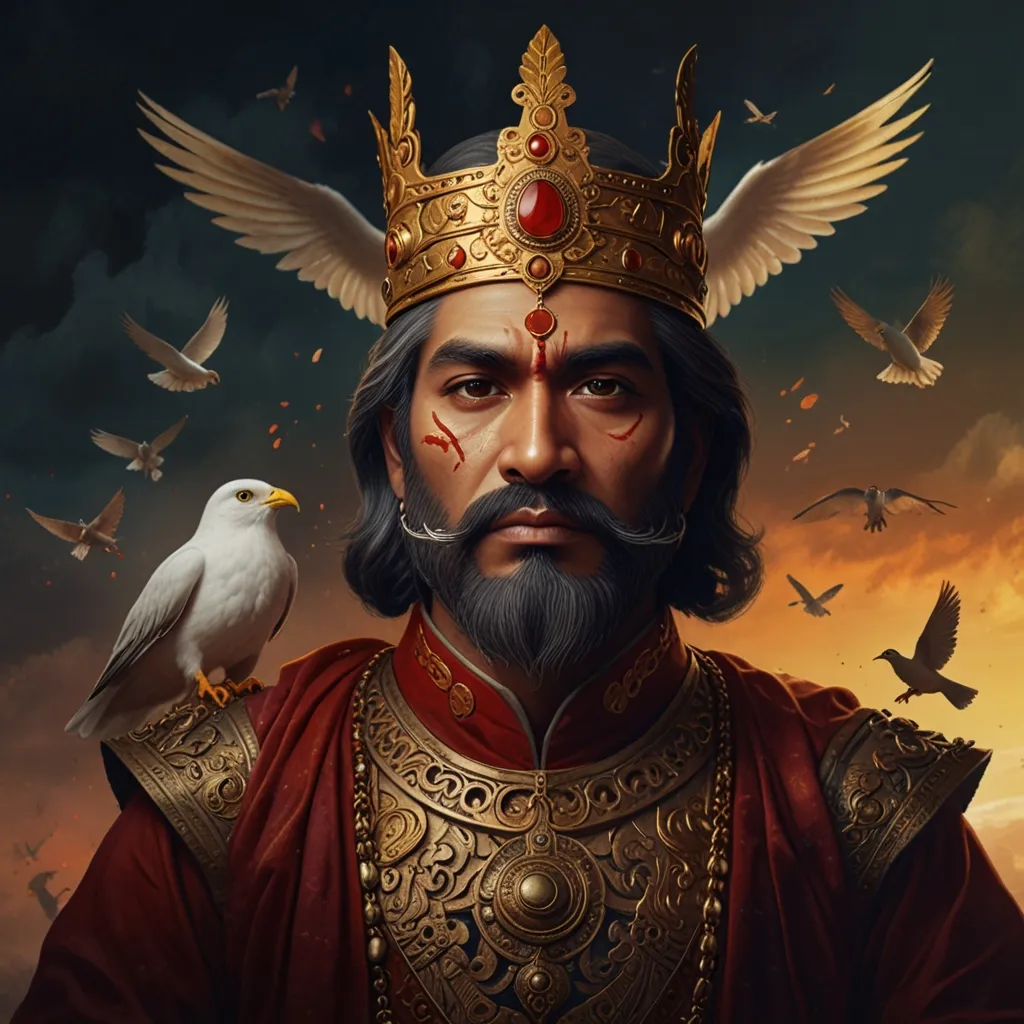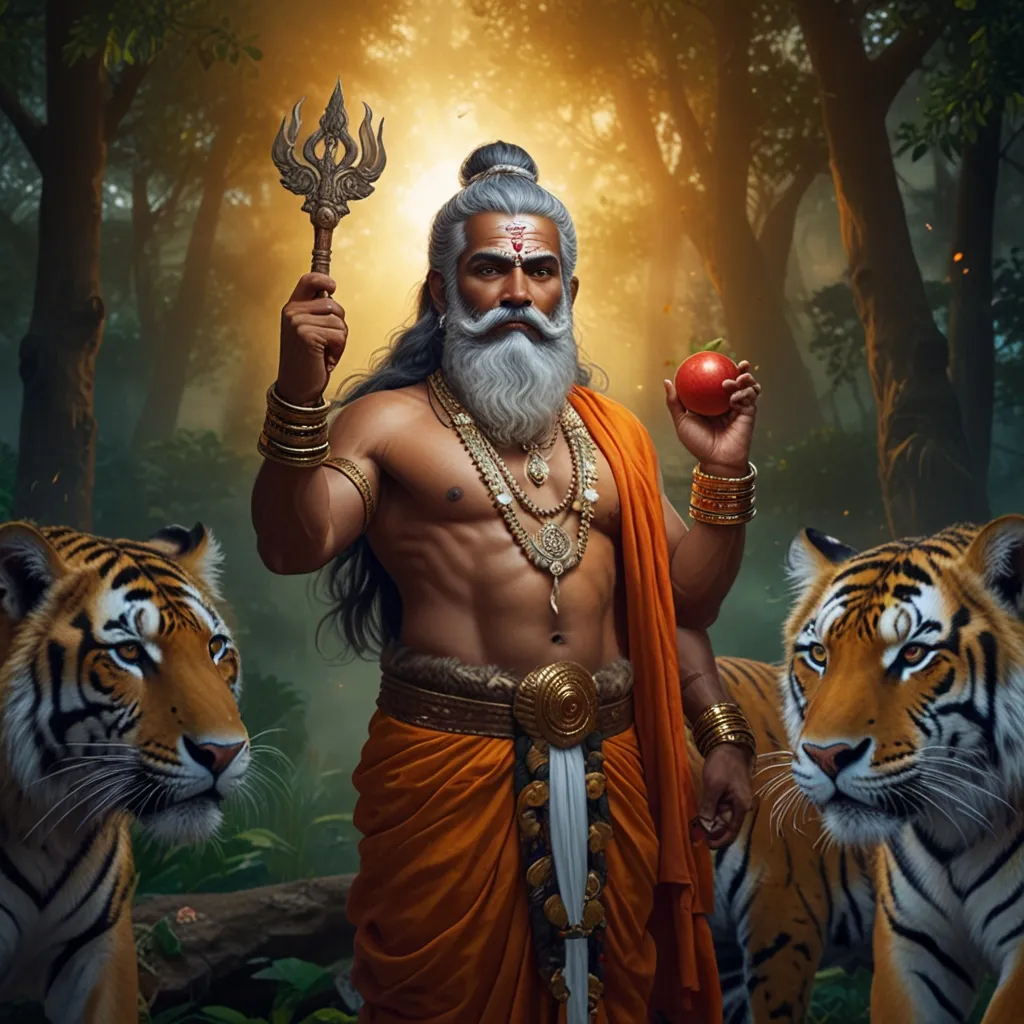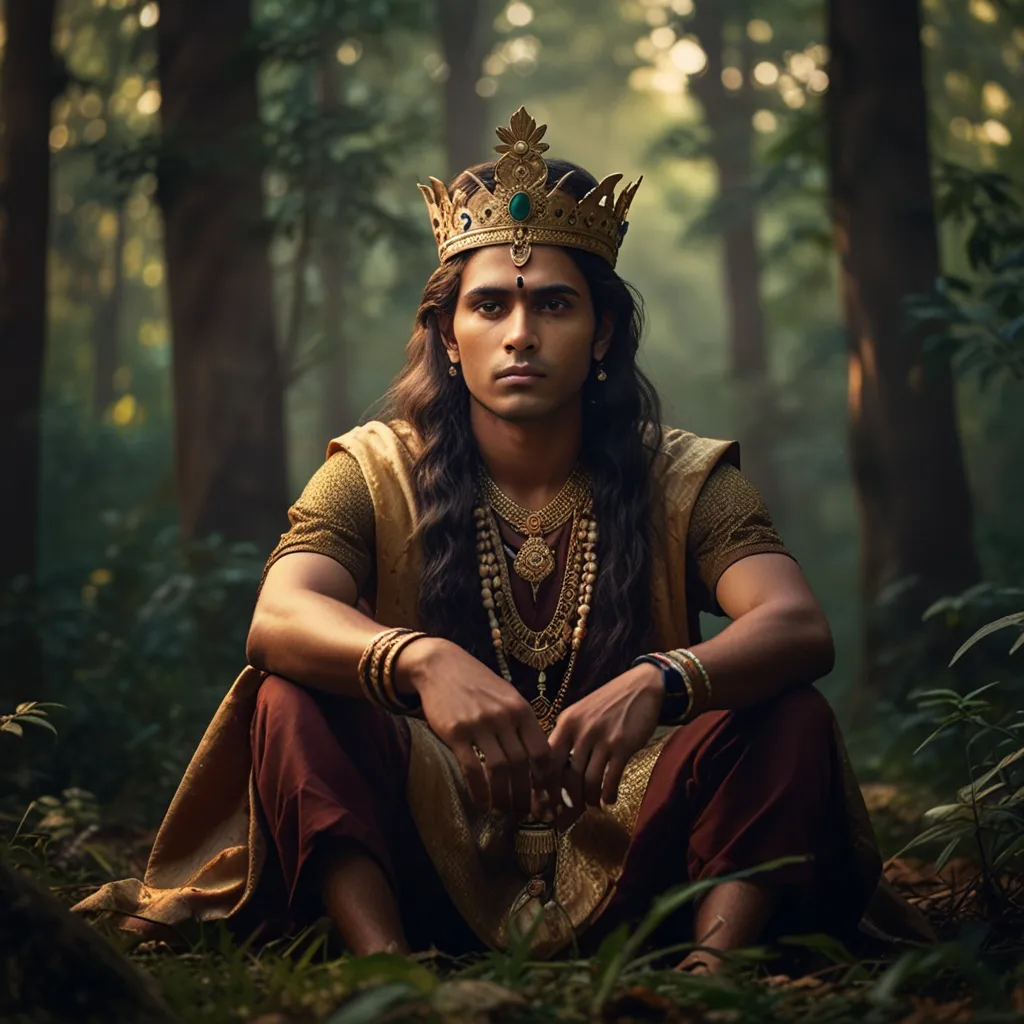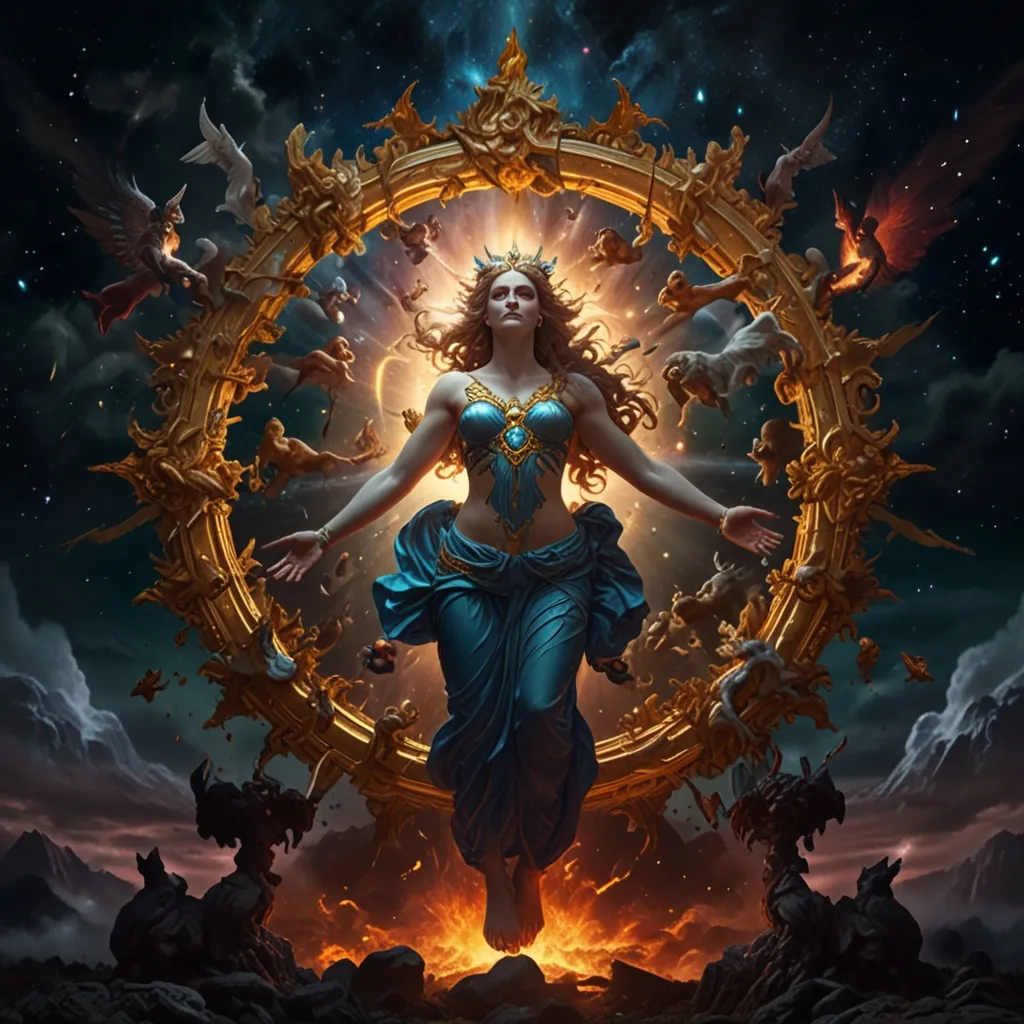In the distant land of Hastinapura, a throne awaits its rightful ruler amid a tale woven with destiny and unexpected turns. Let’s dive into the captivating journey of Pandu, an essential character from the grand epic, the Mahabharata, whose life was marked by both triumphs and tribulations.
The story begins with the sudden demise of King Vichitravirya, who left behind a kingdom in turmoil and two grieving widows, Ambika and Ambalika. Hastinapura was plunged into a succession crisis, as the noble and unwavering Bhishma, Vichitravirya’s brother, had taken a vow of celibacy and thus could not ascend to the throne.
Satyavati, the sagacious queen mother, was determined to secure the future of the Kuru dynasty. She turned to her son, the revered sage Vyasa, to father children with the widows through the practice of Niyoga. This ancient tradition permitted a woman to bear children by a man other than her husband to continue the family lineage.
Vyasa, honoring his mother’s request, approached Ambika first. Ambika, struck with fear upon seeing Vyasa, closed her eyes during their encounter. Consequently, she gave birth to a blind son, named Dhritarashtra, translating to “Kingdom-Holder.” Despite his sightlessness, Dhritarashtra was innately strong and adept with weapons.
Vyasa then approached Ambalika, who was equally terrified by his appearance. Her fear turned her pale, and thus her son was born with a pallid complexion, earning him the name Pandu, meaning “Pale.” Pandu matured into a masterful archer and a courageous warrior, celebrated for his conquests and sagacity.
Satyavati, still yearning for a flawless successor, desired another child. When Vyasa visited a third time, Ambalika’s frequent reluctance led her to send her maid in her place. The maid, unafraid and reverent, greeted Vyasa with honor, and he blessed her with a son marked by wisdom and intellect. This child was named Vidura.
Dhritarashtra, Pandu, and Vidura were raised together, bound by their extraordinary lineage yet distinct in their own rights. Dhritarashtra, despite his blindness, was formidable and proficient in weaponry. Pandu, with his military prowess, expanded their kingdom far and wide. Vidura, although not royal due to his birth, surpassed many in wisdom and knowledge, earning deep respect from his kin and subjects.
Succession soon became a pressing matter. Dhritarashtra, though the eldest, was disqualified because of his blindness. Pandu was then crowned as the king of Hastinapura, with Vidura becoming his wise and trusted prime minister.
As king, Pandu’s reign was marked by victories and peace. He conquered many lands, amassing wealth and spreading the Kuru kingdom’s influence. His people adored him; his rule was synonymous with prosperity and tranquility, often reminisced as the golden era of the Kuru dynasty.
However, Pandu’s glorious life took a tragic and unforeseen turn. On an ill-fated hunting trip, Pandu mistakenly shot the sage Kindama and his wife, who were disguised as deer. In his dying breath, the enraged sage cursed Pandu, proclaiming that he would die the instant he engaged in intimate relations.
Haunted by this dire curse, Pandu renounced his throne, retreating into the forest with his devoted wives, Kunti and Madri. It was here in the tranquil yet challenging wilderness that he sought solace and a simpler life.
The sylvan exile, however, could not suppress Pandu’s desires forever. The curse loomed over him, and eventually, its prophecy came to pass. Overcome by an irresistible urge, Pandu succumbed to the curse, breathing his last in a poignant blend of longing and destiny. Kunti and Madri were left behind to raise their progeny—the five Pandavas—each graced by the blessings of different deities.
Pandu’s legacy persisted through his sons, who rose to prominence in the ensuing tales of the Mahabharata. They carried forward their father’s virtues, becoming iconic figures in their own right. From the just and dutiful Yudhishthira to the mighty Bhima, the valorous Arjuna, and the twin warriors Nakula and Sahadeva, Pandu’s lineage stood testaments to his indomitable spirit.
This intricate narrative, deeply interwoven with the destinies of Hastinapura’s rulers, reveals the complex tapestry of fate and human resilience. Pandu’s life, marked with both commendable rulership and heartrending adversity, resonates through the chronicles of Indian mythology.
The tale of Pandu is not just an epilogue of triumph but also of profound lessons and reflections. It highlights the transient nature of power, the unpredictable interventions of fate, and the enduring spirit of humanity. A shining example of wisdom, strength, and eventual tragedy, Pandu’s story continues to captivate and inspire, reminding us that even in ancient legends, the echoes of human virtues and flaws find a remarkable resonance.






